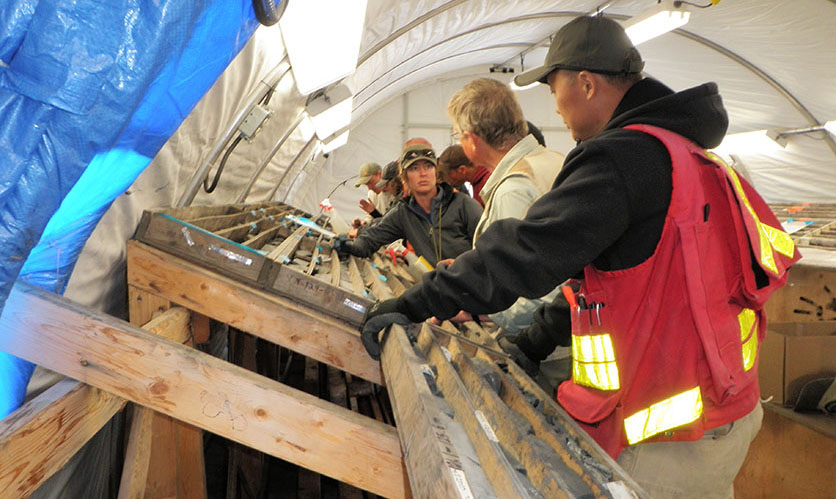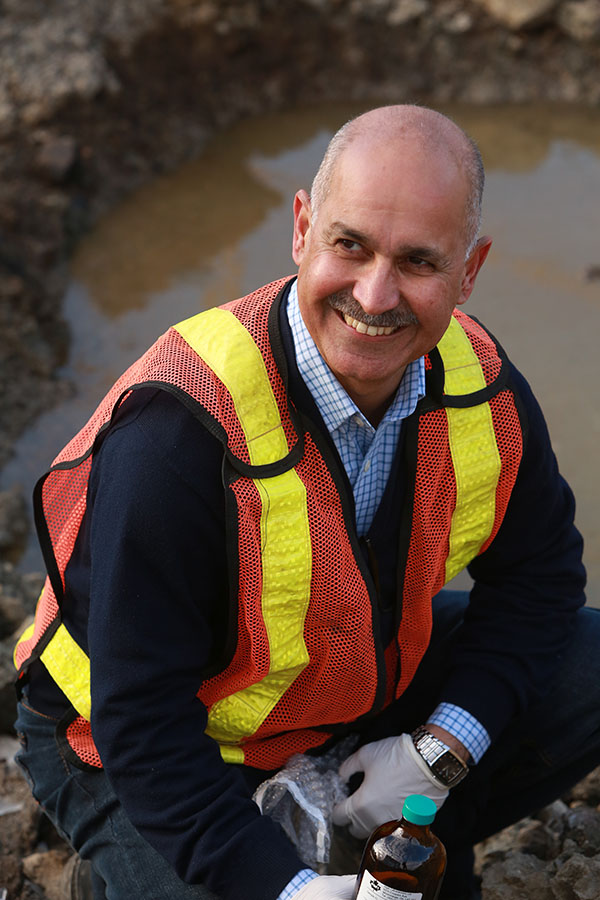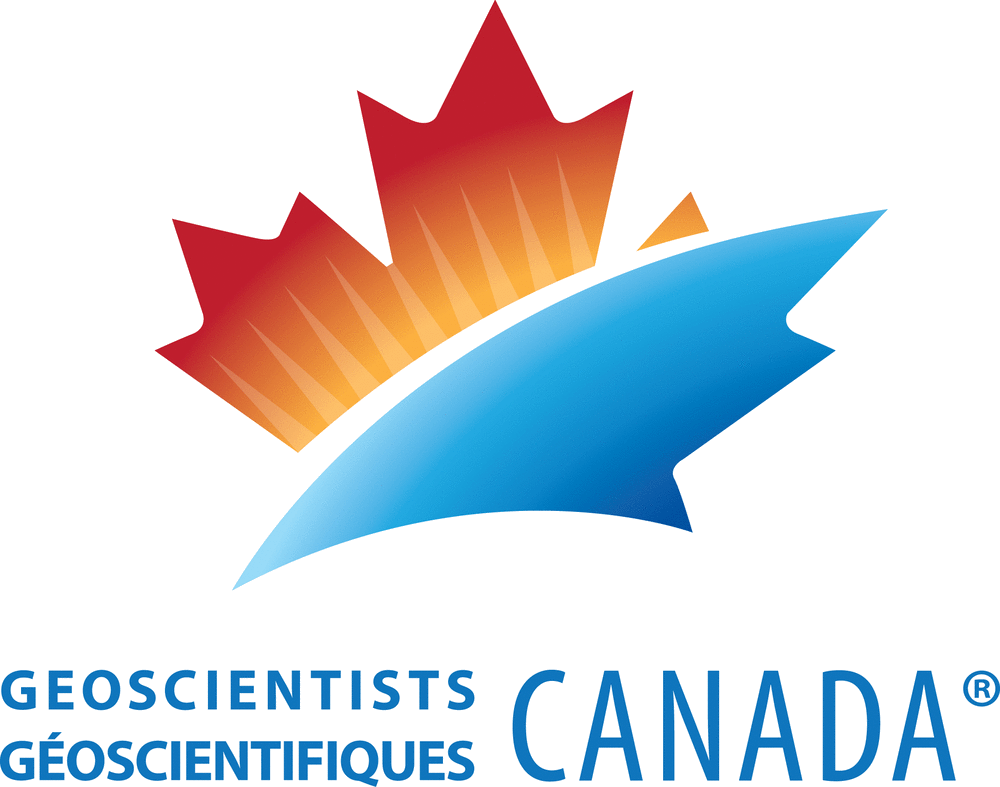The Profession
The Profession
Every day, we use information geoscientists provide and don’t even realise it. When we use our mobile devices, ride a bicycle, get a glass of water, drive across a bridge or through a tunnel, turn on a light or look into a mirror, a geoscientist had something to do with it.
Geoscientists help society meet its demands for natural resources- all kind of minerals, sources of energy, even fresh water and fertile soil. They help protect the public from natural hazards, such as floods, earthquakes and landslides. At the same time geoscientists safeguard our natural environment.
Learn more about the role of geoscience in the 21st Century and the critical societal needs served by geoscientists in this great report from the American Geosciences Institute here.
Geoscience: regulated like lawyers and engineers
People who practice geoscience in Canada are registered and regulated by legislation – or Acts – that govern their profession. This means Professional Geoscientists (P.Geo’s) must be registered, adhere to a code of ethics, and be held individually accountable for their work. It also means it is illegal to practice geoscience without being registered.
Geoscience is a regulated profession in Canada. Eleven provincial and territorial governments in Canada have entrusted the profession of geoscience with the legal power to self-regulate itself. For practice in Prince Edward Island and Yukon (the one remaining province and one remaining territory where self-regulation has not yet been implemented) geoscientists typically register in an adjacent Canadian jurisdiction. The power of self-regulation reflects the fact that the work of geoscientists – like that of other professions, such as engineering, medicine and accounting – is specialized, sophisticated and best-managed by the community of practising professionals.
In Canada some regulatory bodies regulate both geoscience and engineering. Others do not. Outside of Canada, geoscience is generally governed either alone as a single profession, or together with other applied sciences.
What is Geoscience
Geoscience is the scientific study of the planet Earth and its many different natural geologic systems. It includes the study and investigation of Earth’s minerals, soil, water and energy resources: how Earth’s natural systems work today, how they operated in the recent and ancient past, and how we expect they may behave in the future. Geoscience is real-world science, relevant to us all, everyday.
Our Earth has been around for more than four billion years so there’s a lot of information to work with. Some geoscientists work in a traditional broad area of Earth science like geology, geophysics, geochemistry and environmental geoscience. Others practice geoscience in one of many specialized areas, such as volcanology (volcanoes), paleontology (fossils) or geochronology (age-dating rocks); or they work in a new emerging discipline such as medical or forensic geology. What’s important to remember is that there are many different types of geoscientists and different forms of geoscience practice.
If you’re working on a school project or simply want to find out more about geoscience and the work of geoscientists, visit Earth Sciences Canada for some great information.

What P.Geo.’s do
As geoscientists, P. Geo.’s study our planet. There are many different activities geoscientists (also known as Earth scientists) undertake and many different types of work they do. It is as varied as the nature of the science itself!
Geoscientists may predict the behaviour and consequences of earthquakes or search for new sources of municipal groundwater or forecast the quantity of gold to be produced over the next 6 months at an underground gold mine.
Read more about the range of work geoscientists undertake here at Earth Sciences Canada.
P. Geo.’s are employed in a range of settings for different types of employers or clients. For example, they work:
-
as self-employed independent consultants or employees of consulting firms.
- in corporations in the extractive resources sectors-mineral exploration and mining, oil, gas and other energy exploration, development and production, earth materials, water and geothermal.
- for utilities and other essential service providers with responsibility for extensive land-based infrastructure
- as scientists in geological surveys, government departments, First Nations and other public bodies and agencies.
- as faculty at university – training geoscientists and undertaking and supervising scientific research.
- in specialised geoscientific research establishments.
- as scientific advisors and analysts at banks, investments firms, securities traders
- as technical writers and editors
- as columnists, commentators and advisors for the press and other media
Careers in Geoscience
To meet its needs as a country going forward Canada needs geoscientists. It needs experienced geoscientists willing to emigrate to live and put their skills to work in Canada; it needs young people attending Canada’s high schools to consider geoscience as an exciting future career.
Geoscience offers an intellectually challenging and rewarding, wide-ranging career. It offers the opportunity to work out of doors (“in the field”), in a lab or at a desk. In most cases the work of a typical geoscientist involves work in all three of these settings.
While geoscientists work as individual scientists, each responsible for the work they undertake and the persons they supervise, most also contribute as integral members of larger teams that collaborate together to achieve the objectives of their employer, client or funding agency.
Because their work involves the analysis of different Earth systems and geoscientific situations in their natural setting, geoscientists need to gather on-site data and make direct field observations. Work sites locations can be remote and physically challenging. Many geoscientists travel extensively – both to get to their sites of work and as part of on- site logistics. Travel can be local, regional, national or global depending on the nature of the geoscientist’s speciality and the reach of their employer’s interests.

Geoscientists are generally well paid for the work they do. One downside is demand for geoscientists can be sometime be cyclically. In poor economic times employment opportunities can become constrained, particularly in the resources sectors.
The geoscientist community in Canada is large. According to the Canadian Federation of Earth Sciences there are over 20,000 geoscientists in Canada. The main employers of geoscientists in Canada are:
- Mineral exploration, mining and Earth materials companies
- Oils and gas and other energy supply companies
- Consulting firms
- Government agencies
- Universities and research establishments
All these employment sectors and the geoscience community in Canada is general contuse to seek people to consider a career in geoscience. The Canadian Federation of Earth Sciences hosts a comprehensive website for young persons, entitled Explore a career in Earth science.
Related Organizations
- Association for Mineral Exploration British Columbia
- Atlantic Geoscience Society
- Canadian Federation of Earth Sciences
- Canadian Geotechnical Society
- Canadian Institute of Mining Metallurgy and Petroleum
- Canadian National Chapter of the International Association of Hydrogeologists
- Canadian Quaternary Association
- Canadian Society of Exploration Geophysicsts
- Canadian Society of Petroleum Geologists
- Canadian Well Logging Society
- Committee of Provincial and Territorial Geologists
- Council of Chairs of Canadian Earth Science Departments
- Earth Science for Society
- Geological Association of Canada
- Mineralogical Association of Canada
- Prospectors and Developers Association of Canada

